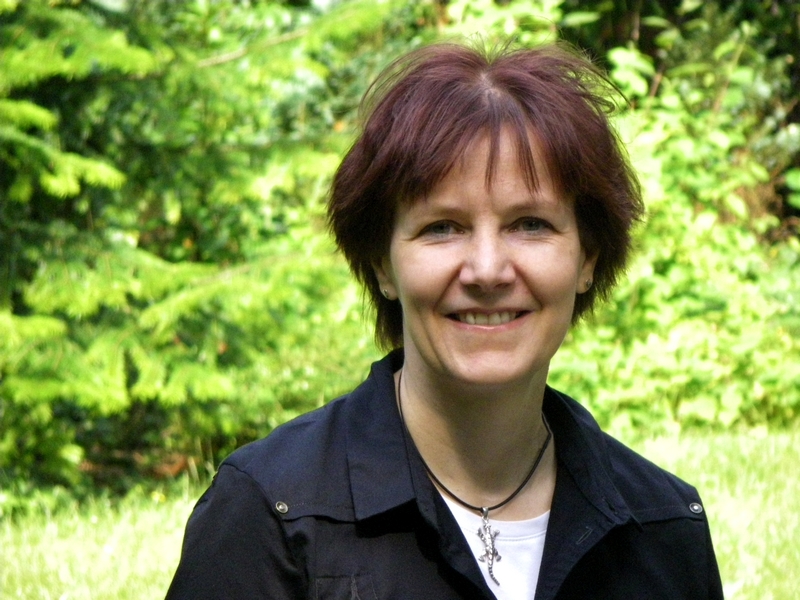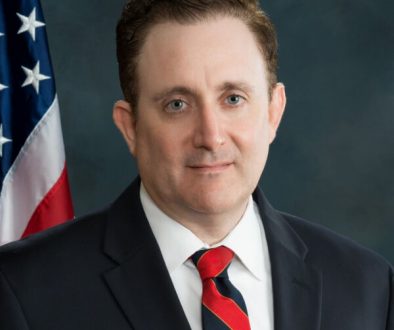Interview with Dr Corina Gericke

Antidote Europe (AE): Thank you Dr Corina Gericke for granting us this interview. Please could you tell our readers how you (a veterinary surgeon) became involved in what is today the biggest organisation of medical scientists against animal experiments in Europe (Aertze Gegen Tierversuche – DAAE) ?
Dr Corina Gericke (CG): In 1985 I was already an active anti-vivisectionist when I got a job as medical technician assistant at the biochemical laboratory of Dr Bernhard Rambeck. He was on the board of DAAE and one of the icons of the German anti-vivisection movement. As an example, he is the author of the book “The Myths of Animal Experiments”. He became a sort of mentor for me and it was thanks to him that I became active for DAAE before qualifying as a vet. After graduation and after practising several years as a vet I became a full-time anti-vivisectionist, first for an animal rights organisation and later for DAAE. Since 2011 I am a member of the board.
AE: How long has the organisation been in existence and what would you say have been your biggest successes so far?
CG: DAAE was founded in 1979 and has certainly played an important role in the movement against animal experiments. The biggest success of the movement is that it has fuelled the development of in vitro methods significantly. Without our work and the resultant public pressure over decades the in vitro research would definitely not be where it is now.
Our organisation can claim specific examples of successes. With our projects in Ukraine and other Eastern European countries we provide animal-free teaching tools to Universities who are willing to replace animal use in science lessons. Meanwhile, we have signed agreements with the heads of 55 university departments in five countries, thus saving at least 53,000 animals per year(!) from being killed for educational purposes. When we started our botox campaign against the extremely cruel LD50 test for testing botulinum toxin products in 2007 the issue was completely unknown in the German public. The constant pressure on the manufacturers and the authorities has led to significant progress in replacing this cruel test.
Together with our umbrella organisation the European Coalition to End Animal Experiments (ECEAE) our experts helped to avoid toxicological tests on at least 18,000 rats and fish under the REACH regulation. These are just a few highlights.
AE: What would you say are the biggest obstacles to replacing the use of animals in Germany today ? Please could you discuss animal tests in industry and in universities as separate issues.
CG: The biggest obstacle is that both the industry and universities have such enormous power in influencing the lawmakers. During the revision of the EU Directive 86/609, industry and university lobbyists managed to obstruct any small improvement, and when the resulting new Directive 2010/63, was transposed into German law their lobbying power managed to water down the legal requirements even more. The result is a law which simply regulates animal experiments but is not designed to stop any of them.
If we examine industry and universities separately, one of the biggest obstacles for industry is the ridiculous validation process which prevents non-animal alternatives from being implemented. In vitro tests which may yield more relevant results than animal tests and which may also appeal to the pharmaceutical and chemical industry have to go through a rigorous validation and regulatory approval system which can take decades and even then they are often not accepted by the authorities or required in parallel with the corresponding animal tests.
Regarding the universities, there are no obstacles for them, they are the obstacle in themselves. Especially in basic research (curiosity driven research) which in Germany is mainly conducted at universities and Max Planck Institutes, where researchers still cling to the outdated system of animal experiments, thus blocking any innovation. Only a legal ban will stop them. But even small improvements to the law are very difficult to achieve because of the power of those who want to prevent any restriction of animal experiments. In Germany the Freedom of Research is a constitutional right which overrides the Animal Protection Act. The Animal Protection Act itself is not effective in limiting animal experiments. The authorities responsible for licensing animal experiments have only very limited possibilities to not approve an application. If an application is filled in correctly the licensing authorities are obliged approve it.
AE: Do you see progress in Germany in terms of public opinion and within the scientific community, in moving away from reliance on animal tests?
CG: People seem to be more aware and informed nowadays than 30 years ago when the issue was new. For example one of our scientists (who is a neurobiologist) and currently on a public awareness touring campaign with our “Mouse Truck” through Germany is getting much positive feedback from the public.
The pharmaceutical and chemical industry are putting a lot of effort in researching non-animal alternatives – mainly for financial reasons. Unfortunately despite good progress they believe that some animal experiments are still necessary. But they are at least on a path to reducing animal use, while in basic research the number of animals used and killed is constantly increasing and researchers working in this field have absolutely no interest in moving away from what they have always done.
On the other hand there are more and more scientists challenging this outdated system. An increasing number of young researchers and start-up companies are making fantastic progress in developing sophisticated research methods such as organ chips and really believe in this modern way of research. They are the future!
AE: In conclusion, are there any other thoughts you would like to share with our readers that have not been covered in the interview?
CG: The fight against animal experiments is arduous, lengthy and sometimes frustrating. However, the moral right and scientific facts are on our side. I am absolutely convinced that the time will come when mankind will look back upon animal experiments as what they are: a crime, an atrocity and scientific fraud. We all can contribute our part so that this time will happen sooner rather than later.




